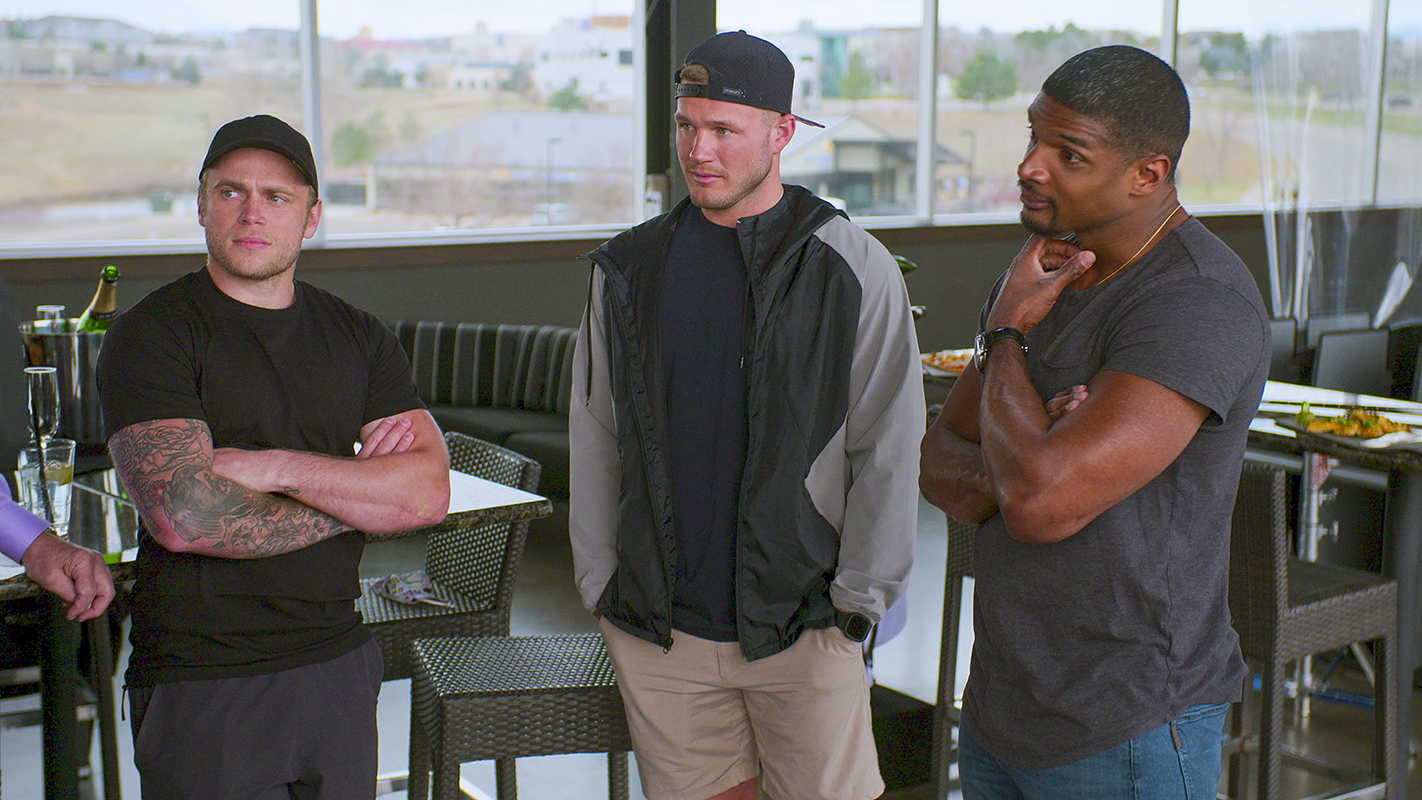There are moments in Coming Out Colton (★★★★☆), a new reality show on Netflix, that feel like a Public Service Announcement for the struggles and rewards of admitting to everyone in your life that you’re a member of the LGBTQ community. This is not at all a bad thing, as the engaging, meticulously crafted, six-episode docu-series may help a closeted youth living in the middle of nowhere feel less isolated. At its core, Colton presents a positive, hopeful pathway for living one’s authentic life.
Sharply directed by Josh Barnett, the GLAAD-approved series follows a distinct narrative course, one unencumbered by unexpected twists and turns and too many complexities. The path is about as — ahem — straightforward as it gets.
Episode by episode by episode (with one departure into Nashville and a mind-numbingly dull gay-lister party), Colton Underwood, an ex-NFL star, and, more importantly, former meat rack of desire on ABC’s cringeworthy heterosexual dating fest The Bachelor, reveals to his family, friends, high school coach, teammates, pastor, and inevitably the whole dang world via a high profile interview with Robin Roberts on Good Morning, America, that… he’s gay.
He’s aided on his journey by fellow athlete Gus Kenworthy. In addition to providing additional eye candy for those only coming to quench their Underwood thirst (he is a handsome man, no question), the Olympian serves as a sort of catchall Jiminy Cricket, offering guidance, advice (really, really good advice at times), sex-positive tutelage (their visit to a Nashville sex shop is priceless), and some much-needed slutty counterpoints to Underwood’s Golden Retriever puppy dog chasteness. Truly, with Underwood’s gee-whiz expressions and aversion to kissing anything that comes within lip-shot, the man feels like a sentient chastity belt.
This isn’t to imply that every gay man should, upon proclaiming his sexuality to the world, pounce into bed with the first penile object he spies, but Underwood takes prim and proper to new heights, to the point where it’s even shocking to watch him sip wine from a novelty penis straw.
There were serious issues with Underwood prior to his coming out — notably the obsessive stalking of his Bachelor mate, Cassie Randolph, who (wisely) declined to be part of this show. She has surrogates turn up instead, and boy, do they lay into the former Bachelor. Coming Out Colton, to its credit, doesn’t avoid the dark parts of Underwood’s story, but it does attempt to pave over them, smoothing out the rocky bits by explaining his aberrant behavior as a product of externalized stress from being entrenched in the closet for so long.
“I knew that if I let her go, I would have to deal with me,” Underwood says. “And I didn’t want to. I wasn’t ready for it.” Being on The Bachelor, he tells his father, was his last-ditch attempt at trying to “pray away the gay,” as if dating 30 women on national TV were some cure-all for secretly reveling in gay porn. “I distinctly remember thanking God for making me the Bachelor for getting me out of being gay,” he later tells his pastor, whose response to Underwood, a devout Catholic, is that as a sin “homosexuality is really, really bad,” right up there with abortion and divorce.

Underwood’s struggle with faith, how to reconcile his Catholicism with a church that clearly wants no part of him, is the most emotionally gripping and fundamentally important aspect of the show. Underwood is presented with an option, the MCC Church, which allows him to be who he is and still feel a connection with God.
Another aspect of the show that resonates, quite brilliantly, is how sports reinforce a toxic climate for gay athletes. A segment where Underwood and Kenworthy have a roundtable chat with Michael Sam, Esera Tuaolo, and David Kopay, all former NFL-ers and all now out, is particularly potent. (Sam, who had a very different, much more negative coming out experience, deserves a series of his own.)
Ditto for the moment in which Underwood nervously confronts his high school coach about the homophobic toxicity of the locker room. While the coach, who seems to be straining to hold back discomfort with Underwood’s admission, expresses his love and support for his former star athlete, he also, more or less, shrugs off homophobia in the locker room as immutable, as in “Oh well, boys will be boys.” Nothing’s changing anytime soon at that high school.
The show does beg the question: What would Underwood’s coming-out moments have been like without a camera crew in tow? His family is instantly, graciously accepting, though his father at least acknowledges in later episodes that he’s still wrapping his head around the gay thing. But mother, brother Connor, and father all say the same thing to Underwood after he reveals his truth: “I still love you.”
It’s that “still” that gnaws at you. It’s a qualifier, and quite frankly, when you think about it, kind of a barbed one. Why not just “I love you”?
The “still” is likely said daily to some young (or older) person proclaiming their truth to a family member or friend. So if Coming Out Colton leaves us with anything, it’s that when we get to that point where the “still” is vanquished, then true societal progress will have finally been made.
All episodes of Coming Out Colton are now available on Netflix. Visit www.netflix.com.



